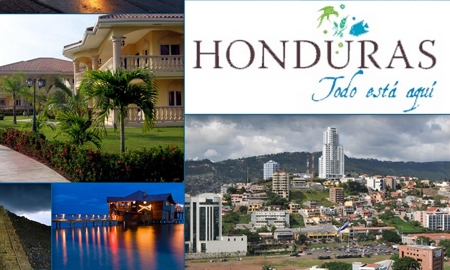Dynamic and qualified workforce
A 3.4 million-strong workforce comprising more than 2.2 million young people between the ages of 18 and 35 makes for a strong argument for setting up shop in Honduras. Labor costs are among the region’s lowest and the market features the availability of young technicians trained in local institutions, such as IPC and El Zamorano, among others. Honduran human resources also include qualified bilingual professionals and graduates from 50 college campuses and more than 728 bilingual schools, many of them certified by the U.S. Southern Association of Colleges and Schools (SACS), and many employees attend multiple training programs on their career development path.
Modern infrastructure
Honduran communications are characterized by the rapid modernization and expansion of its physical and communications infrastructure. The country’s telecoms sector is almost entirely liberalized and it is likewise striving for openness in the energy generation sector. Honduras offers sea access to the world’s markets via its six ports on the Atlantic and the Pacific Oceans. Puerto Cortés is the only deepwater port in Central America and is the first port in Latin America to achieve port security qualification for the Container Security Initiative (CSI) and the Megaports Initiative, both from the U.S. government. More than 300 companies, most specializing in light manufacturing, are operating in private industrial parks – an industrial model that has operated successfully for more than 20 years in Honduras. It is also contemplating an interoceanic highway corridor to connect the Atlantic and Pacific Oceans.
Direct access to key markets
The DR-CAFTA has made Honduras an integral partner of the American manufacturing system and boosted trade with the US, Costa Rica, El Salvador, Nicaragua, Guatemala and the Dominican Republic. It has also signed free trade agreements with Colombia, Taiwan, Chile, Panama, Mexico and the EU. Negotiations are under way with the European Free Trade Association (EFTA), Belize, the Republic of Korea, Peru, and Trinidad and Tobago. In November 2013, Canada’s Minister of International Trade Ed Fast and the Honduran Minister of Industry and Commerce José Adonis Lavaire signed the Canada-Honduras Free Trade Agreement designed to create new jobs and new opportunities on both sides.
Pro-investment, democratic system
Honduras is regulated by a democratic system with strong institutions, a transparent legal system, and political and social stability since 1980. Laws that protect and promote foreign investment provide very favorable legal and tax incentives to export-oriented companies and any place in Honduras can become a free zone/industrial processing zone, where all companies can operate tax-free.
Emerging business sectors
Traditional sectors such as agriculture, textiles and tourism, are ripe for investment, as are value-added industries such as agribusiness, light manufacturing and business services. The flexible manufacturing sector is capable of exporting at different scales and is bolstered by favorable tax and customs codes. The rapidly growing tourism sector, which attracts travelers from around the world, is underserved and opportunities abound in the sustainable tourism sector in particular. In addition, its high percentage of well-spoken bilingual people makes Honduras ideal for the export services sector. The nation’s forestry industry provides a huge variety of non-traditional woods over a 32 million-hectare area, with highly competitive prices, diverse climates and an enormous potential for low irrigation agriculture.

0 COMMENTS